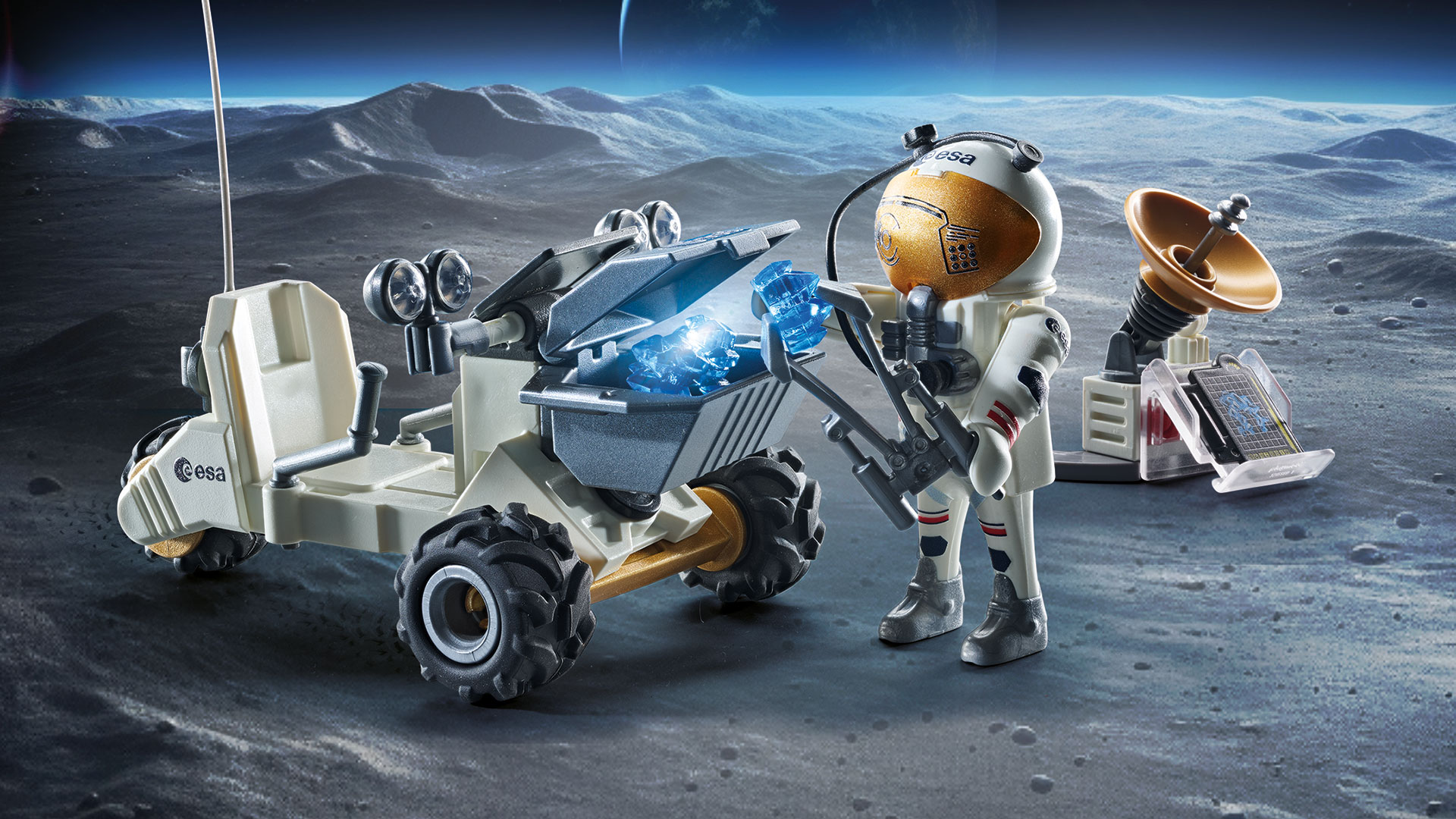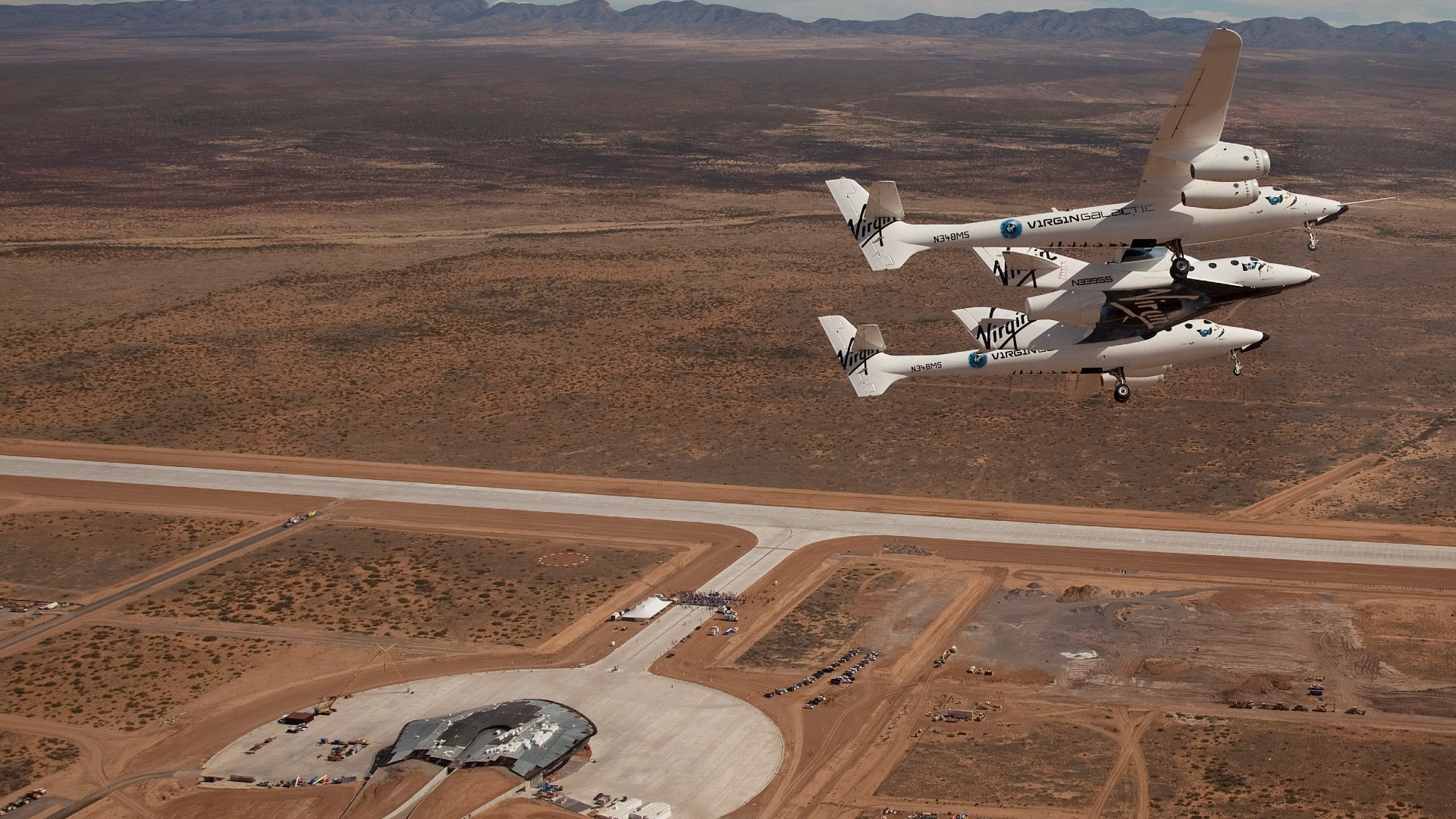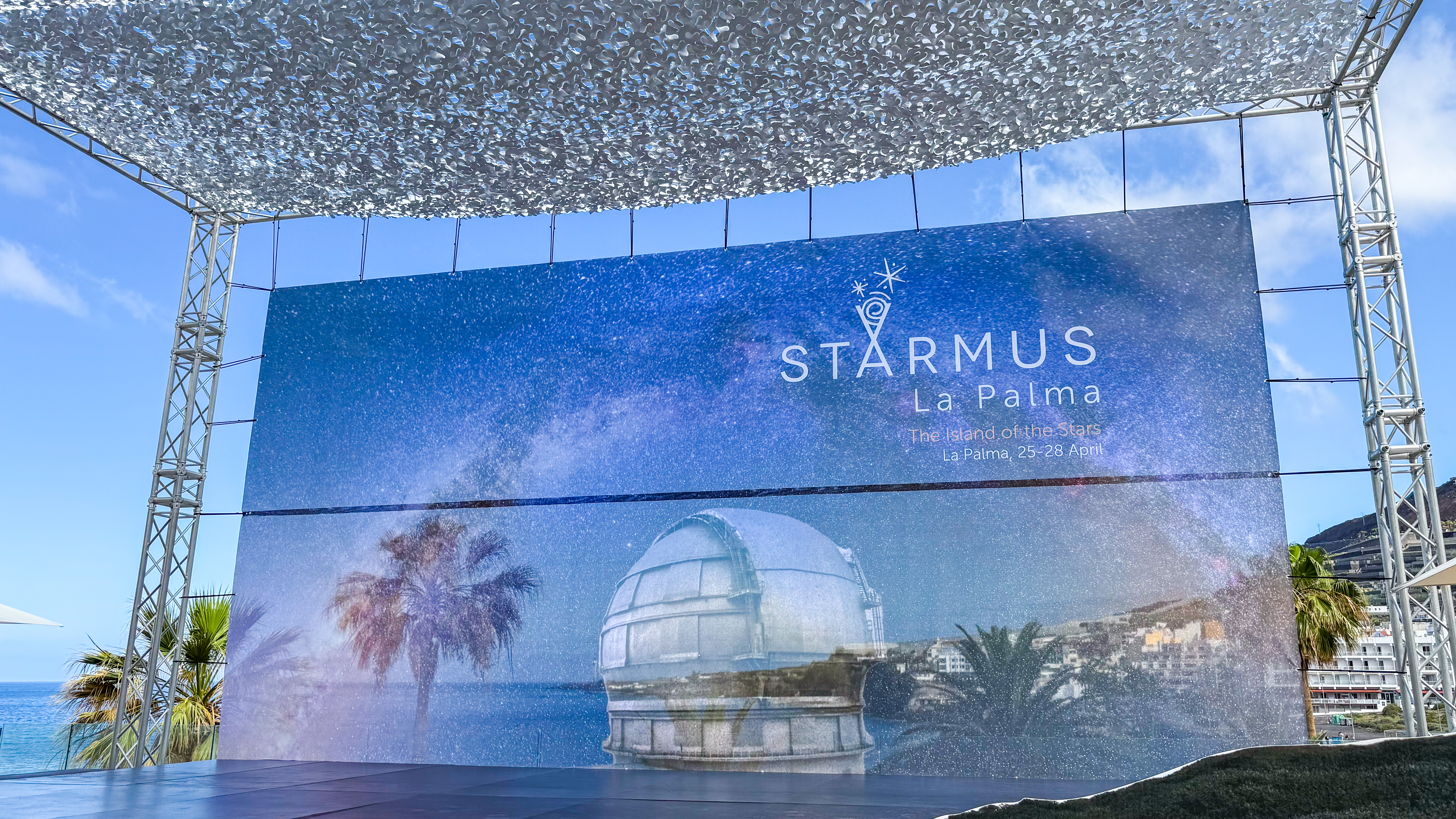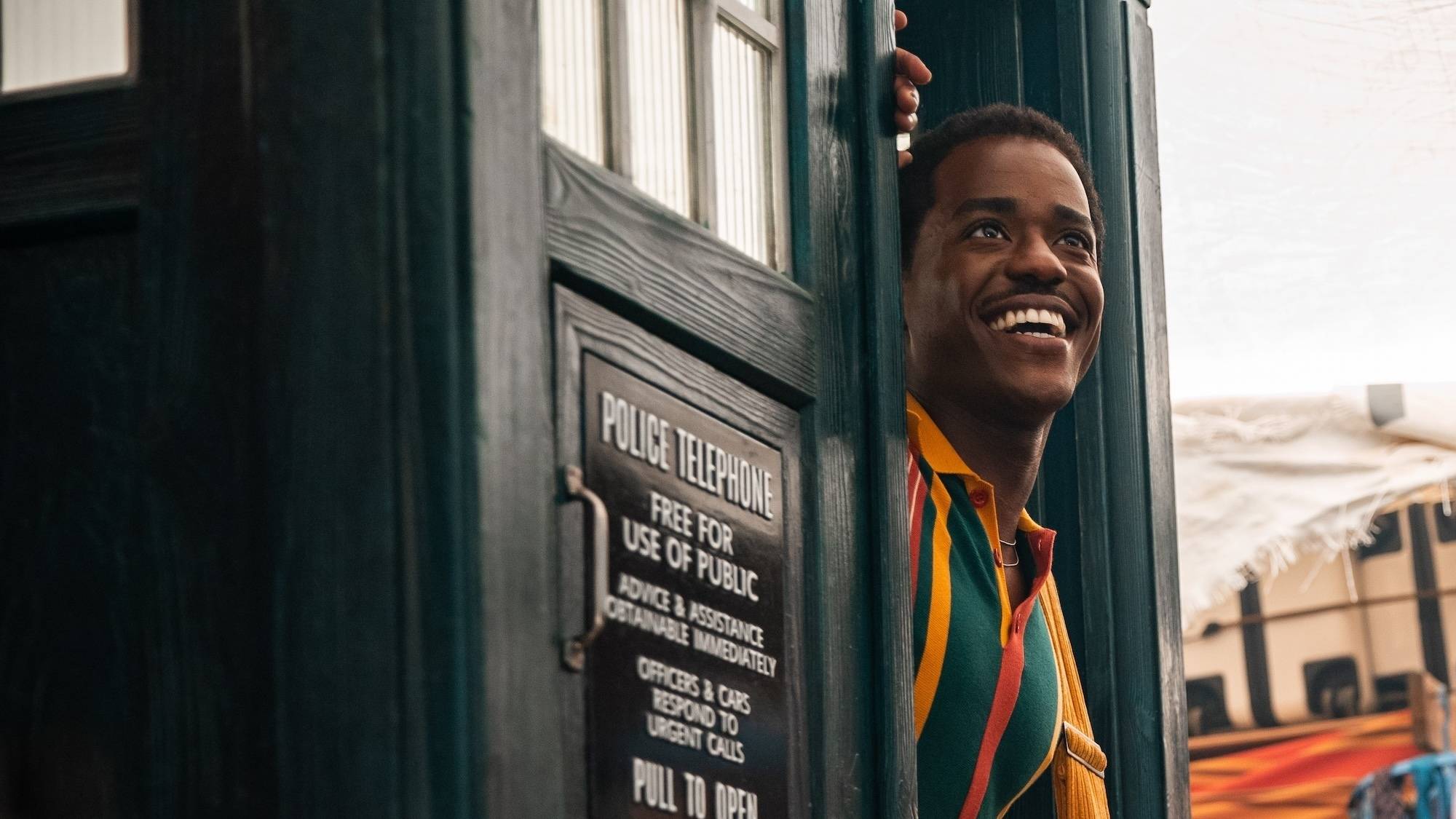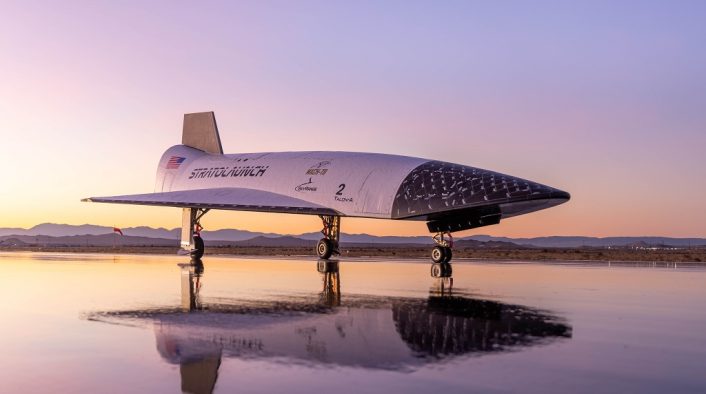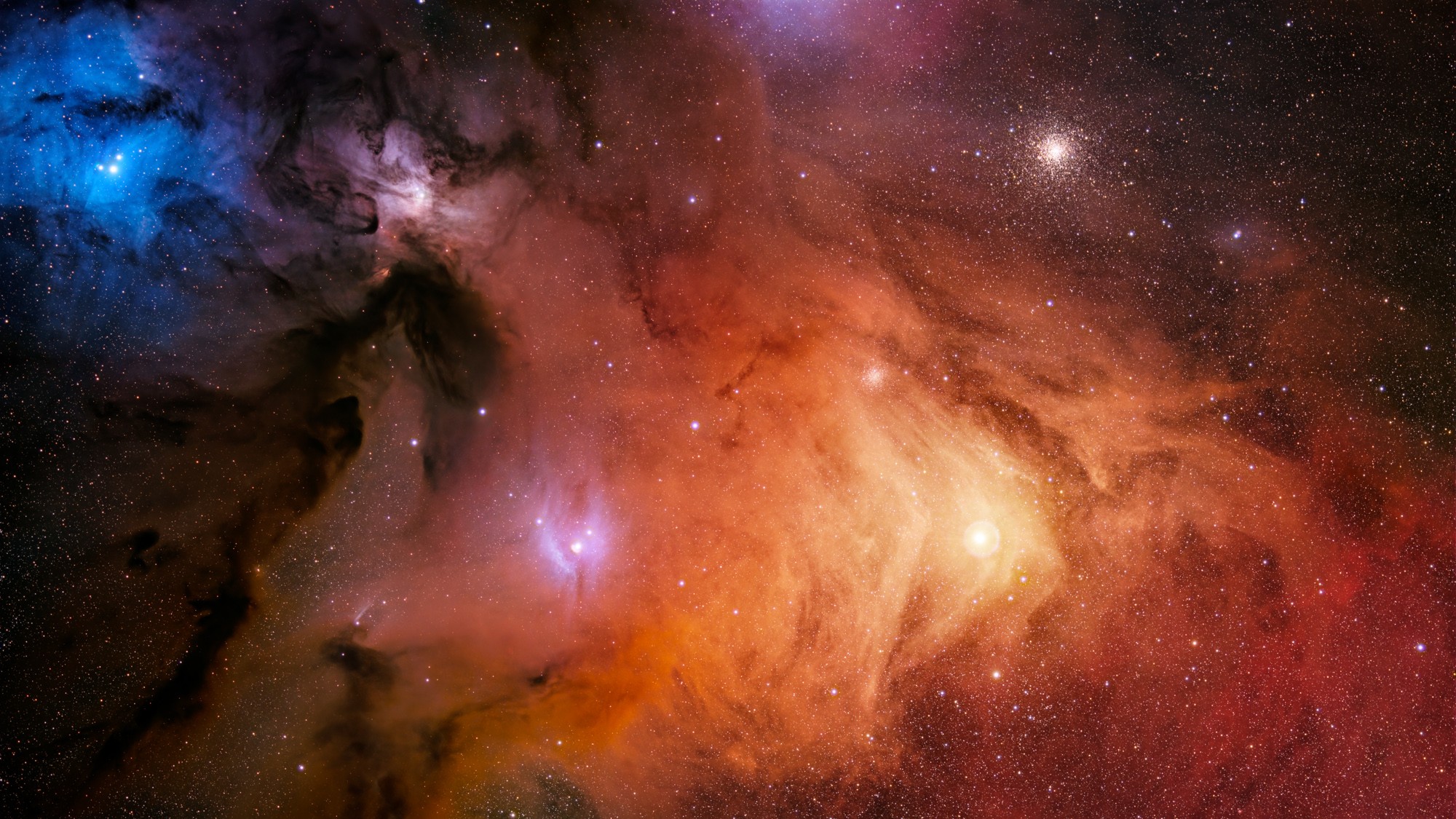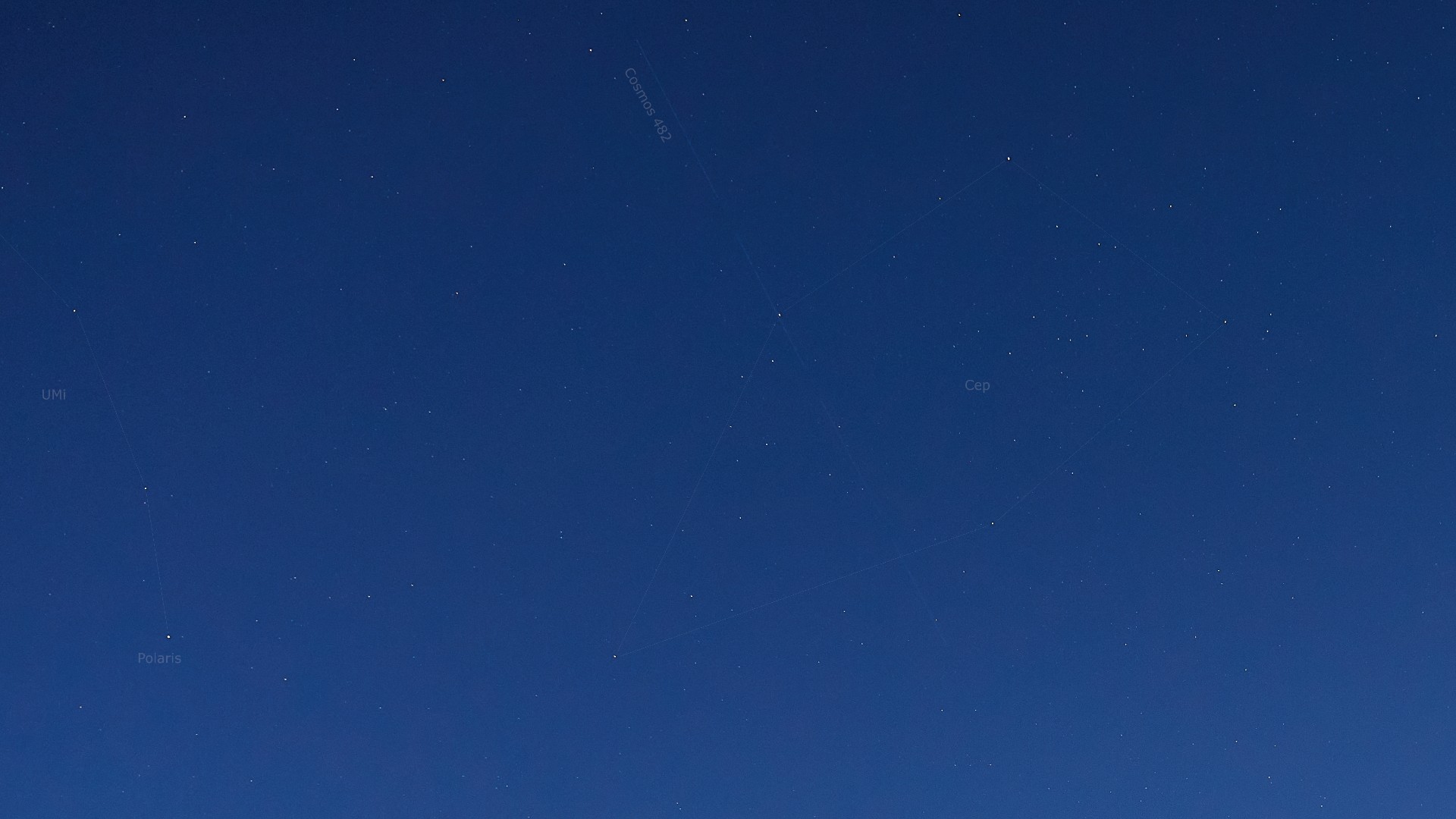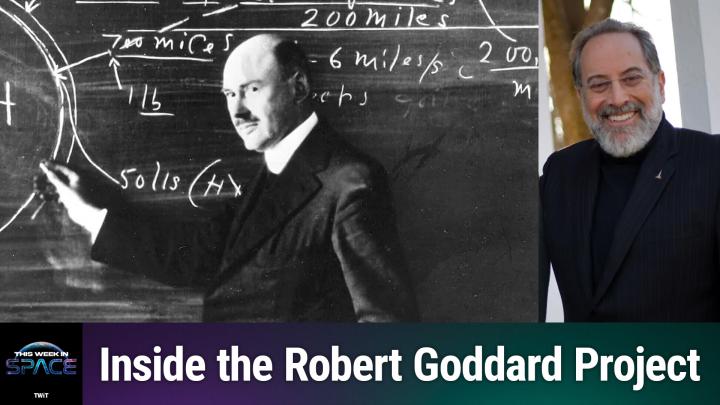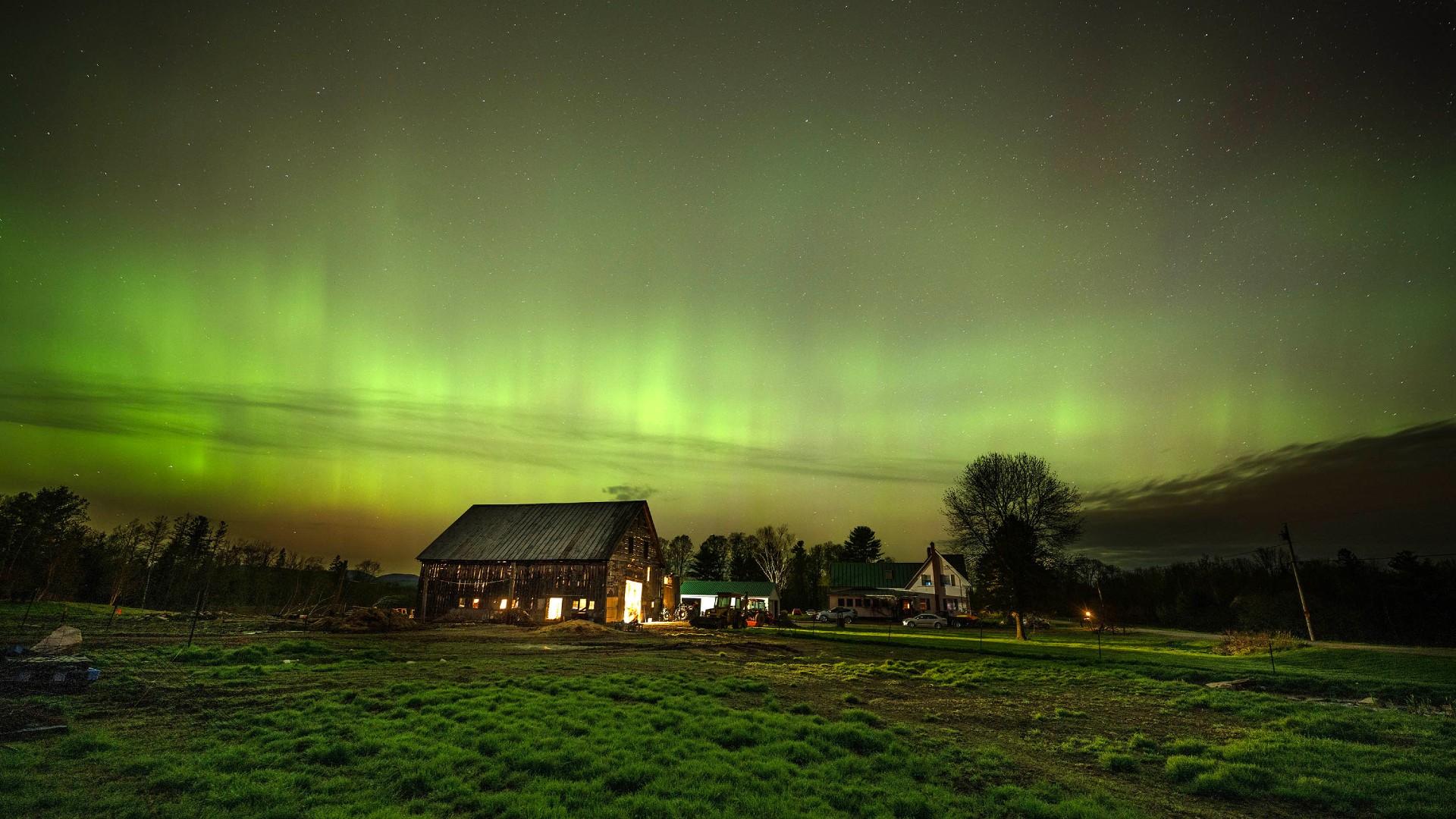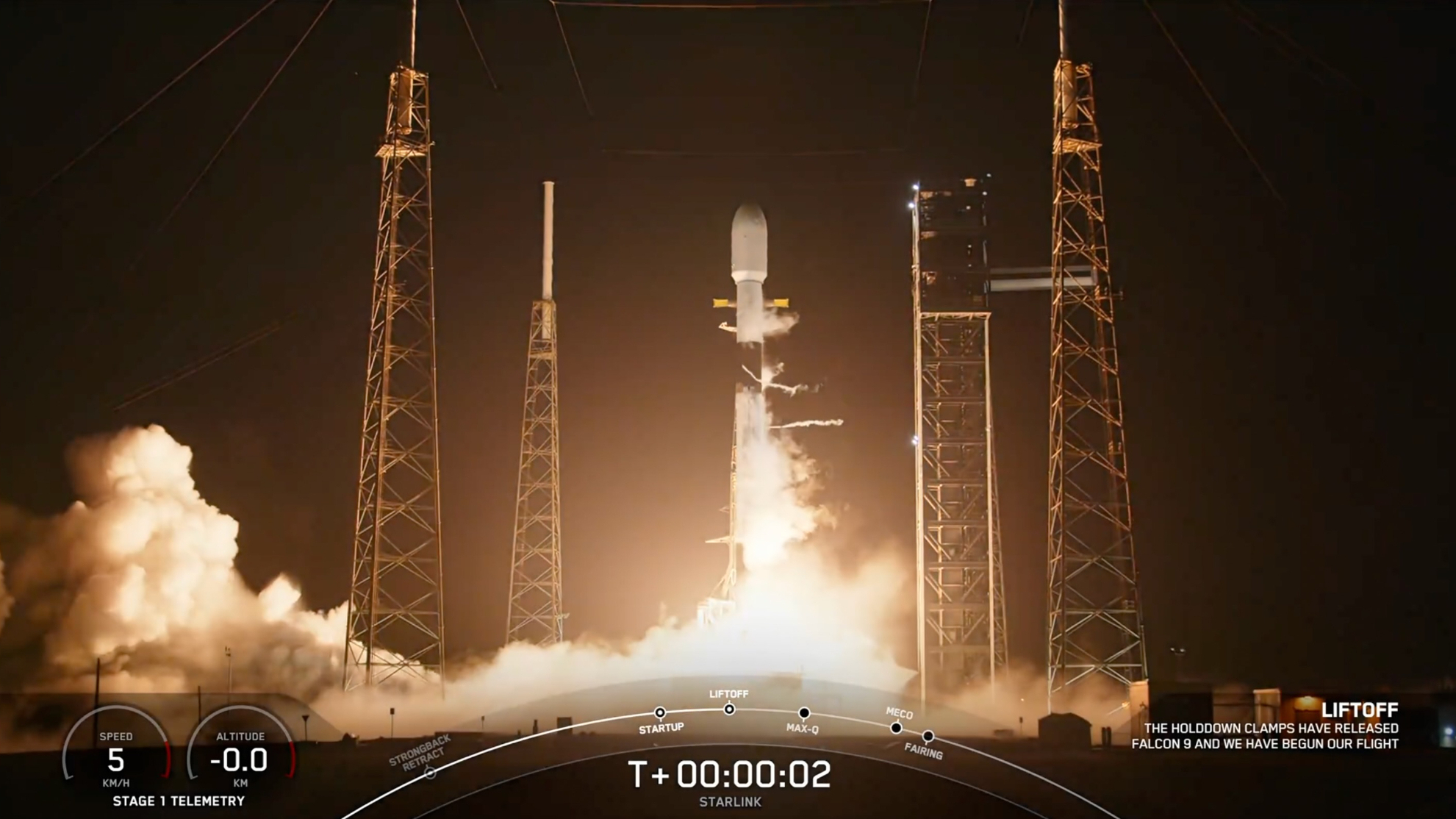
Virgin Galactic's suborbital spaceliner is grounded at the moment, but the company is confident it'll be fully up and running by the end of the year.
Virgin Galactic flies people and payloads to suborbital space using an air-launch strategy: A carrier plane called VMS Eve drops the six-passenger, two-pilot VSS Unity space plane at an altitude of about 50,000 feet (15,000 meters). Unity then fires up its onboard rocket motor, making its own way to the final frontier before cruising back home to Spaceport America, Virgin Galactic's launch site near Las Cruces, New Mexico.
Unity has four spaceflights under its belt, the most recent of which toted billionaire Virgin Group founder Richard Branson and three other passengers in July 2021. Shortly after that attention-grabbing mission, Virgin Galactic took both Unity and Eve out of service temporarily to maintain and upgrade the vehicles.
In photos: Virgin Galactic's 1st fully crewed spaceflight with Richard Branson
This work will improve the durability and reliability of Eve and Unity, allowing both to fly more often when they enter commercial service, Virgin Galactic representatives have said. And that milestone should be coming relatively soon.
"We remain on track and on schedule to commence commercial service later this year," Virgin Galactic CEO Michael Colglazier said during a call with investors on Tuesday (Feb. 22).
And Unity won't be Virgin Galactic's only space plane for long. Fight testing of the next one in line, VSS Imagine, is expected to start this year, Colglazier said. If all goes according to plan, Imagine will start flying payloads on revenue-generating flights about a year from now, he added, with paying customers coming aboard later in 2023.
Get the Space.com Newsletter
Breaking space news, the latest updates on rocket launches, skywatching events and more!
Imagine will be able to fly about once every two weeks when it's fully operational, Colglazier said. Even with the enhancements, Unity won't reach such a cadence; its target is once per month.
Virgin Galactic is also working on a new "Delta class" of space planes, each of which should be able to fly weekly. The first Delta vehicle could start flying paying customers in 2026, Virgin Galactic Chief Financial Officer Doug Ahrens said on Tuesday's call.
This work will improve the durability and reliability of Eve and Unity, allowing both to fly more often when they enter commercial service, Virgin Galactic representatives have said. And that milestone should be coming relatively soon.
"We remain on track and on schedule to commence commercial service later this year," Virgin Galactic CEO Michael Colglazier said during a call with investors on Tuesday (Feb. 22).
And Unity won't be Virgin Galactic's only space plane for long. Fight testing of the next one in line, VSS Imagine, is expected to start this year, Colglazier said. If all goes according to plan, Imagine will start flying payloads on revenue-generating flights about a year from now, he added, with paying customers coming aboard later in 2023.
Imagine will be able to fly about once every two weeks when it's fully operational, Colglazier said. Even with the enhancements, Unity won't reach such a cadence; its target is once per month.
Virgin Galactic is also working on a new "Delta class" of space planes, each of which should be able to fly weekly. The first Delta vehicle could start flying paying customers in 2026, Virgin Galactic Chief Financial Officer Doug Ahrens said on Tuesday's call.
A decently high flight cadence is a priority for Virgin Galactic, which has already signed up about 750 customers. And that number is likely to grow; the company temporarily opened ticket sales to the general public on Feb. 15, for $450,000 per seat.
Virgin Galactic is not profitable at the moment; the company incurred a net loss of $81 million during the fourth quarter of 2021, Ahrens said. And it'll likely take a few years for that situation to change markedly.
"Taking into account the expected weekly flight cadence for the Delta-class ships and the resulting growth in revenue from the expanding fleet, we are aiming for positive free cash flow by 2026," Ahrens said.
Mike Wall is the author of "Out There" (Grand Central Publishing, 2018; illustrated by Karl Tate), a book about the search for alien life. Follow him on Twitter @michaeldwall. Follow us on Twitter @Spacedotcom or on Facebook.
Join our Space Forums to keep talking space on the latest missions, night sky and more! And if you have a news tip, correction or comment, let us know at: community@space.com.

Michael Wall is a Senior Space Writer with Space.com and joined the team in 2010. He primarily covers exoplanets, spaceflight and military space, but has been known to dabble in the space art beat. His book about the search for alien life, "Out There," was published on Nov. 13, 2018. Before becoming a science writer, Michael worked as a herpetologist and wildlife biologist. He has a Ph.D. in evolutionary biology from the University of Sydney, Australia, a bachelor's degree from the University of Arizona, and a graduate certificate in science writing from the University of California, Santa Cruz. To find out what his latest project is, you can follow Michael on Twitter.
